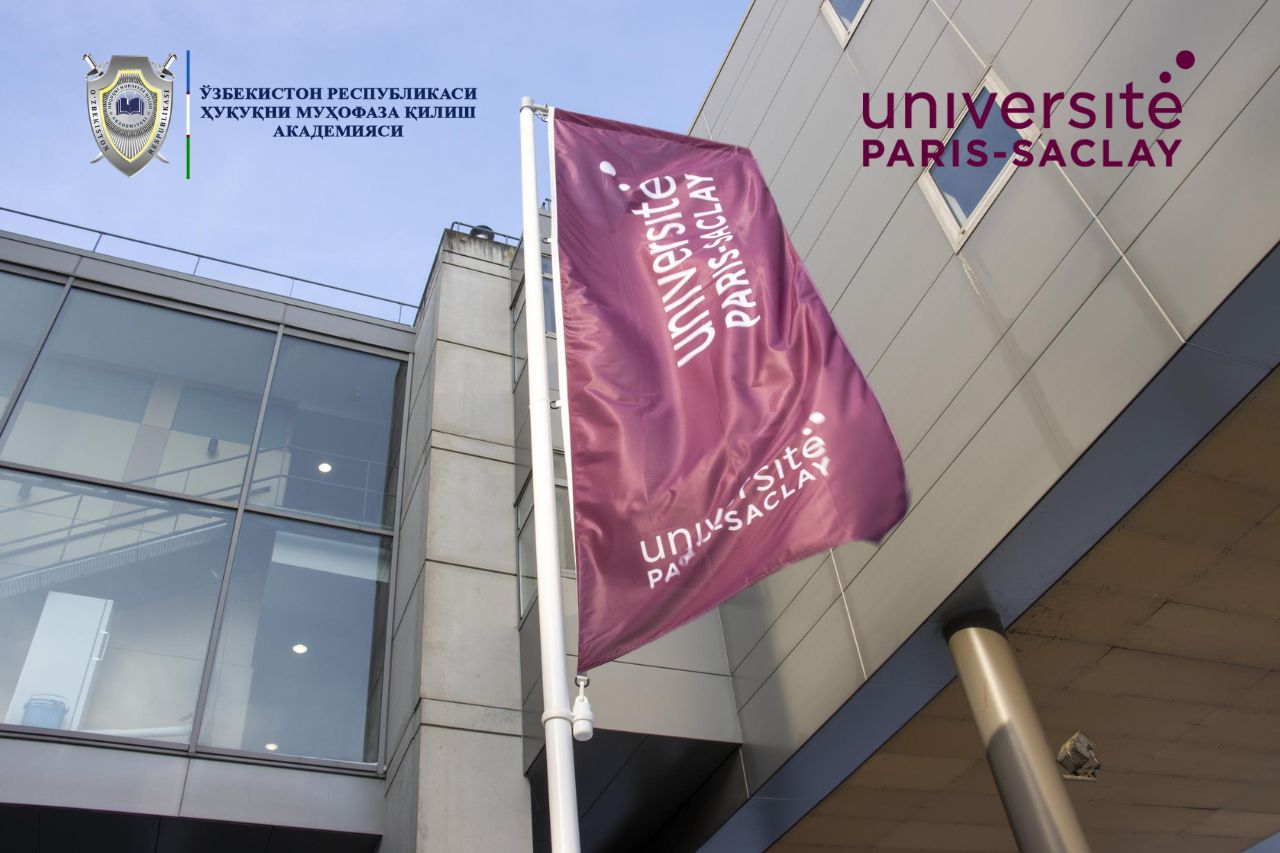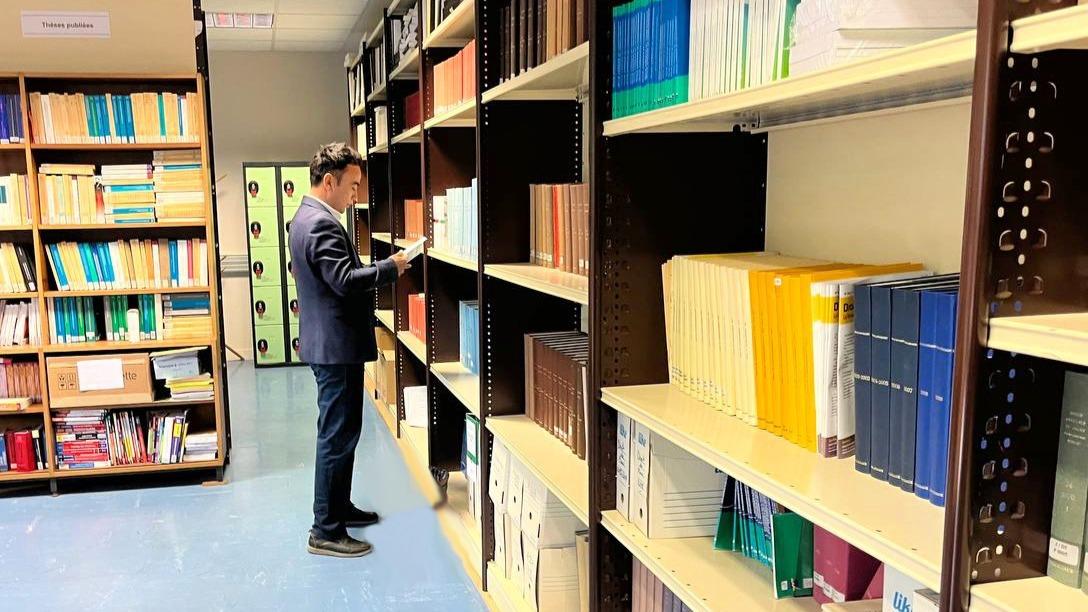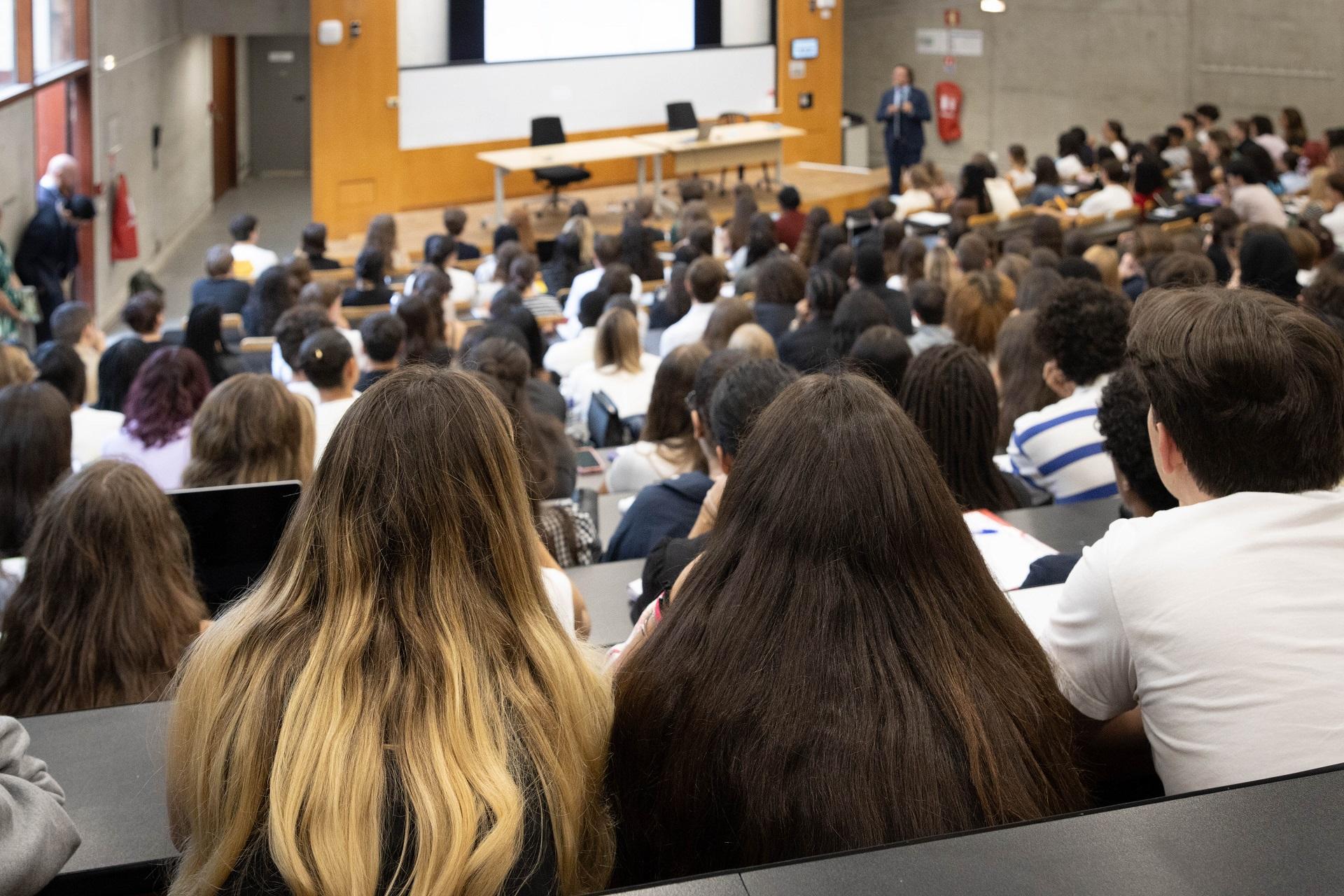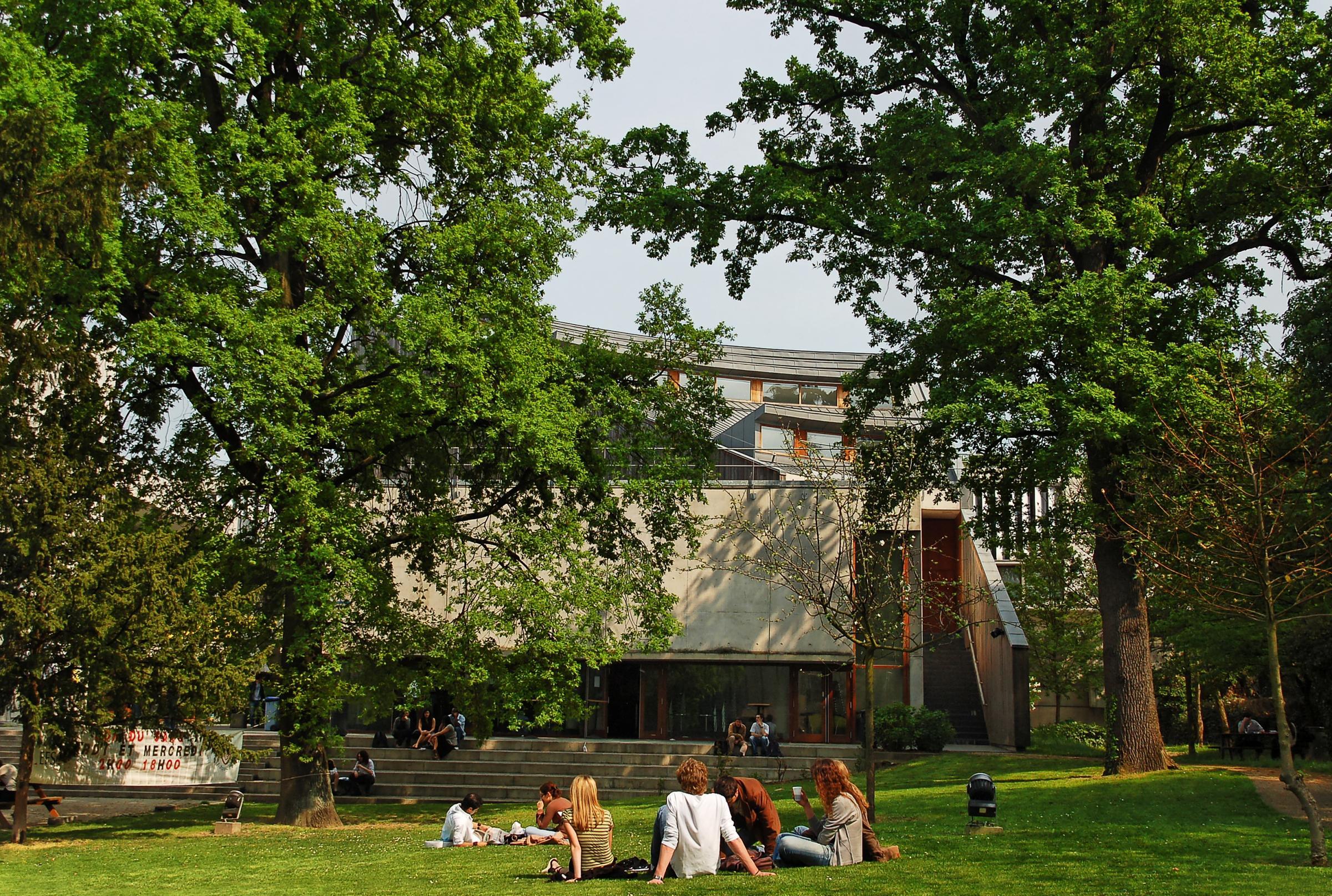The joint scientific research conducted by the Law enforcement academy and Paris-Saclay university has been successfully completed
Head of the department of international law and human rights at the Law enforcement academy of the Republic of Uzbekistan, L.Kh. Isakov, completed a scientific internship at one of France’s leading research institutions – Paris-Saclay University. The topic of his research was: “Protection of the rights of migrants from Central Asia: legal Foundations, state policy, and practice”.
The internship was organized within the framework of the Atlas Postdoc program, implemented by Paris-Saclay university in cooperation with the Foundation Maison des sciences de l’Homme (FMSH) and the French Institute for Central Asian Studies (IFEAC). This prestigious initiative provides early-career researchers from Central Asia, who obtained their PhD degrees after 2019, with the opportunity to conduct studies in the fields of the rule of law, human rights, and pressing legal issues. Participation requires fluency in French and professional engagement in academic or governmental institutions.
During the internship, L. Isakov examined the legal status of migrants from Central Asia, host countries’ policies, visa and migration rights, interactions with law enforcement agencies, as well as social protection systems. The research findings were presented at a scientific seminar at Paris-Saclay university and sparked keen interest among faculty members, master's students, and doctoral candidates.
As part of the program, an academic article titled “Uzbekistan’s legal policy in the field of migration” was also prepared for publication in a European journal on international migration. The article analyzes the alignment of national legislation with Uzbekistan’s international obligations, approaches to ensuring human rights, mechanisms for regulating migration flows, and aspects of migrant integration into society.
Based on the results of the internship, practical recommendations were developed aimed at enhancing Uzbekistan’s research infrastructure, strengthening human resource capacity, and fostering international scientific cooperation. Special attention was given to the promotion of a culture of open scientific dialogue and active participation in international academic forums. These measures are intended to bolster the country’s scientific potential and support its integration into the global academic community.




